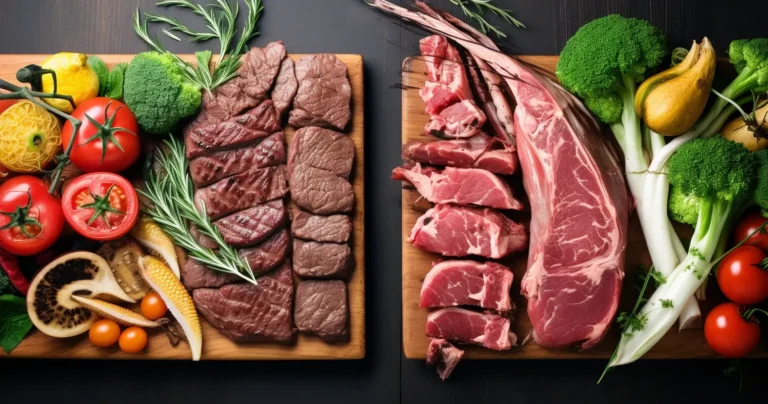In the age of social media, it is becoming increasingly difficult to find reliable information on topics such as healthy eating.
Especially when it comes to nutrition, fake news often lasts for years and even in 2024 there are numerous widespread nutrition myths, which we take a closer look at in today’s post.
In today’s article we look at the following myths:
– Sugar substitutes make you ill
– Detox diets are needed to cleanse the body of toxins
– Food supplements are bad
– Fat makes you fat
– Raw food is healthier than cooked food
Based on sound scientific evidence, we debunk these myths and provide reliable information to help you make informed and healthy nutritional choices.
5 Diet Myths
1. Sugar substitutes make you ill
The myth is that sugar substitutes can have negative effects on our health. But the reality is (as often) more complex than it seems at first glance.
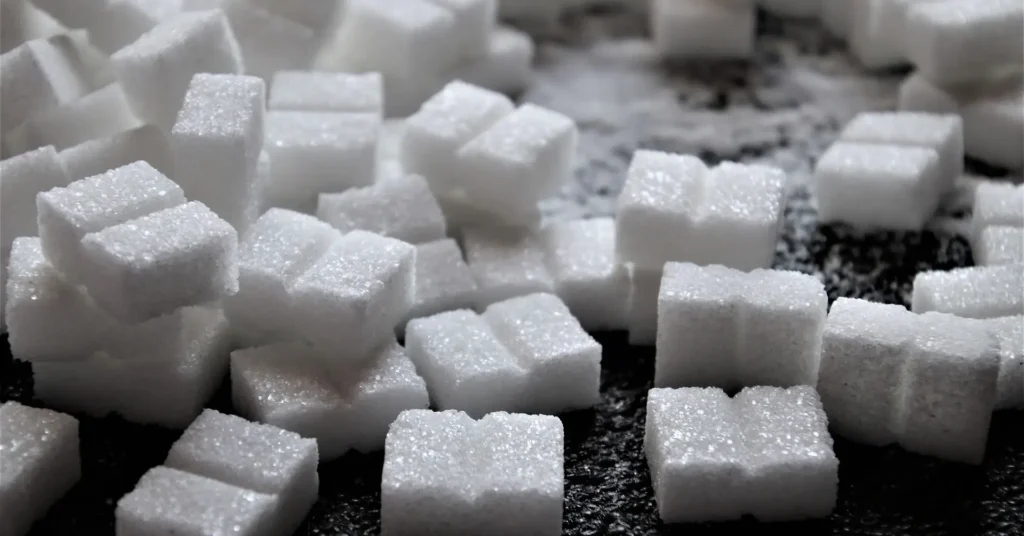
Numerous scientific studies have shown that moderate consumption of sugar substitutes is generally safe and does not necessarily lead to health problems.
Not all substitutes are the same
There are different types, including aspartame, stevia, sucralose, erythritol and many more. These substances have different chemical structures and are processed in the body in different ways.
Erythrol
Personally, I mostly use erythritol, which belongs to the group of sugar alcohols. These are metabolized independently of insulin and therefore do not trigger a rise in blood sugar levels.
In contrast to other sugar substitutes, erythritol not only does not cause tooth decay, but also has an antioxidant effect. It is also almost completely absorbed in the small intestine, which is why it is usually well tolerated.
Other sweeteners such as aspartame, saccharin or sucralose reach the large intestine and appear to have a detrimental effect on the intestinal flora.
Substitutes and weight loss
When it comes to losing weight with sugar substitutes, things get complicated because the effect is highly individual.
Objectively speaking, you consume fewer calories with a food/drink containing a sugar substitute than with the equivalent with normal sugar. This can help you lose weight.
However, because of the sweet taste, our body thinks it is getting sugar (=energy) and prepares itself accordingly.
If no energy is then supplied, cravings are quite plausible – the body then gets the energy by other means.
This risk is greatest with light drinks that are consumed in isolation without a meal, as they actually contain no energy at all.
If you sweeten desserts with erythritol instead of normal sugar, for example, the risk of cravings is rather low, as the dessert still contains energy in the form of macronutrients.
Dental health
Another important aspect is that sugar substitutes are generally gentler on teeth than conventional sugar. Caries bacteria cannot metabolize sugar as effectively when they come into contact with sugar substitutes. This can help to improve oral health.
Of course, as with everything, it’s the dose that makes the poison. Excessive consumption of sugar substitutes, as with many things in life, is not recommended. However, balanced and moderate use is generally harmless.
2. Detox diets are needed to cleanse the body of toxins
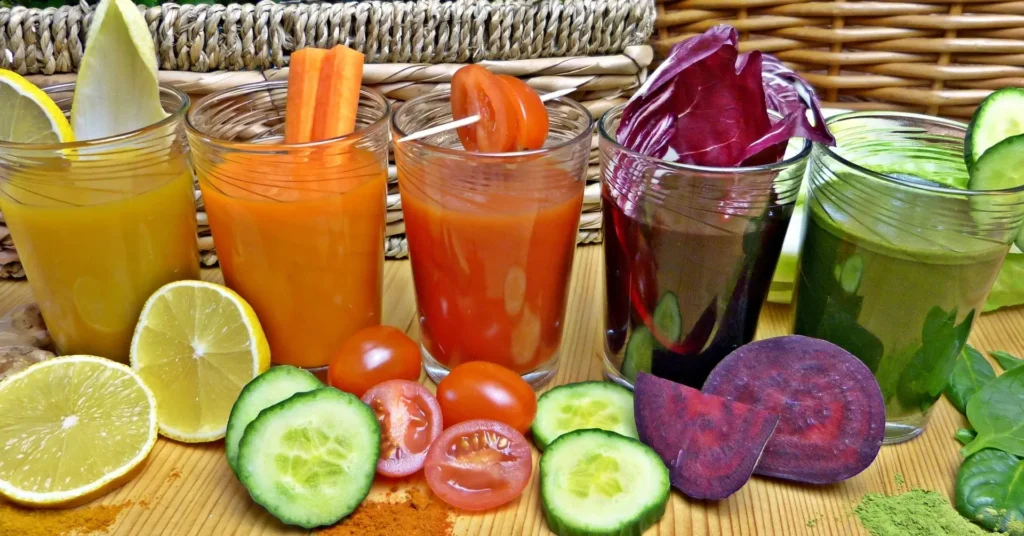
There are many myths surrounding detox diets that claim our body needs special measures to rid itself of toxins. Let’s take a look together at why this idea does not correspond to reality and how our body takes care of its detoxification all by itself.
The internal detoxification process
The idea that we need detox diets to detoxify our bodies is often based on the misconception that our bodies are unable to cleanse themselves.
In fact, the body has a highly complex system consisting of the liver, kidneys, lungs, intestines and skin, which is designed to eliminate harmful substances.
The liver plays a particularly important role here. It filters and neutralizes toxins by converting them into less harmful substances, which are then excreted via the kidneys.
The kidneys in turn filter the blood and excrete waste products via the urine.
The lungs eliminate harmful gases, while the intestines eliminate toxins via the bowel movements. Even the skin, our largest organ, contributes to the elimination of metabolic products.
Detox diets often promise to speed up this natural detoxification process, but in reality they can put unnecessary stress on the body. Avoiding certain foods or extreme fasting cures can lead to deficiency symptoms and weaken the immune system.
Instead, there are many gentle and sustainable ways to support the natural detoxification process.
Support the natural detoxification

- Hydration: drinking enough water is crucial for kidney function and the removal of toxins.
- High-fiber diet: A balanced diet with plenty of vegetables and fruit promotes intestinal health and supports natural elimination.
- Exercise: Regular physical activity promotes blood circulation and metabolism, which encourages the elimination of toxins.
- Sleep: Adequate sleep is important for the regeneration and recovery process of the body, including its detoxifying organs.
- Avoid toxins: Where possible, you should reduce your exposure to harmful substances, whether in the form of pollutants in the air or harmful chemicals in household products.
It is important to emphasize that the body is capable of detoxifying itself without extreme measures. A balanced lifestyle with a healthy diet, sufficient exercise and adequate rest not only promotes natural detoxification, but also contributes to an overall sense of well-being.
Instead of looking for short-term solutions, it is worth focusing on long-term, sustainable habits.
3. Food supplements are bad
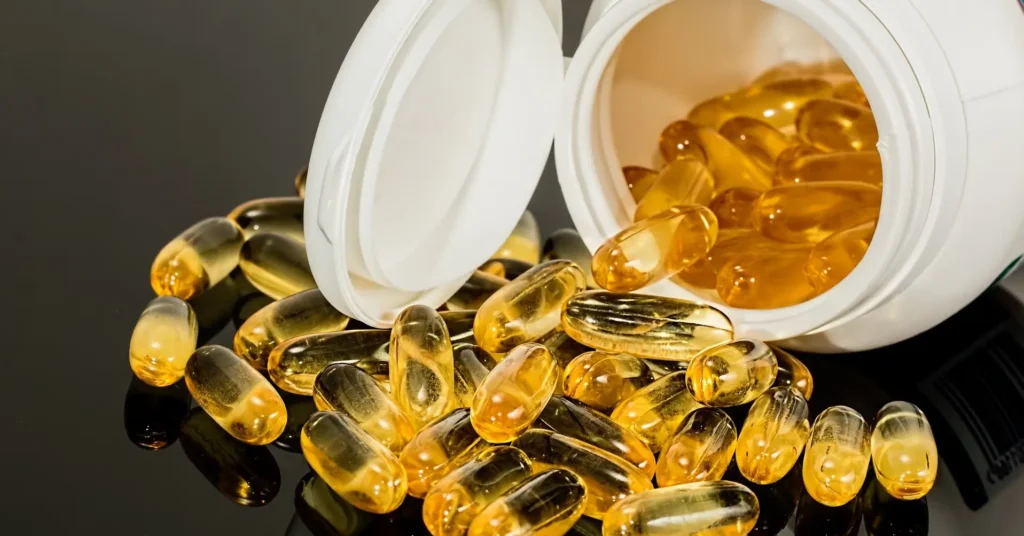
Most people still have a misconception about food supplements in 2024. They see them as unnatural and unhealthy.
So let’s take a look at why this is not the case and when they can be a valuable addition to our diet.
Supplement or replacement?
The first thing to do is to understand the purpose of supplements. They are not intended as a substitute for a healthy diet, but (as the name suggests) as a supplement.
That’s why meal replacement products, that supposedly contain all the nutrients of a healthy meal and can easily replace, it are nonsense.
Supplements refer to the targeted supplementation of the diet with nutrient supplements that are insufficiently supplied in the diet itself.
A good example is the widespread vitamin D deficiency. Many people, especially in regions with low levels of sunlight, have difficulties absorbing sufficient vitamin D through natural sunlight and food.
A supplement can help to correct the deficiency and strengthen bone health and the immune system.
There are also certain life situations in which the need for certain nutrients is increased. Pregnant women or people with certain illnesses could benefit from targeted supplementation to cover their increased requirements.
It is important to emphasize that the quality and dosage of the supplements are crucial. A consultation with a health professional can help to select the right supplements according to individual needs.
Overall, the blanket rejection of supplements as “bad” is therefore not justified. When used sensibly, they can provide useful support to promote health and compensate for nutrient deficiencies.
4. Fat makes you fat

Different types of fat
First of all, not all fats are the same. As always, we should take a closer look at the topic of fat and differentiate between the various fats.
Healthy fats, such as those found in avocados, nuts, seeds and oily fish, play a crucial role in various functions in the body.
To see what important tasks fats perform in our body, let’s take a look at the well-known omega-3 and omega-6 fatty acids. These essential fatty acids are vital as the body cannot produce them itself.
Omega-3 fatty acids, which are found in fish, linseed and walnuts, contribute to heart health, have an anti-inflammatory effect and support brain function.
Omega-6 fatty acids, which are found in vegetable oils such as sunflower oil as well as nuts, also play an important role, particularly in regulating inflammatory reactions.
The importance of fats
The body needs fats not only as a source of energy, but also for the absorption of fat-soluble vitamins (A, D, E, K) and the formation of cell membranes.
They also contribute to the formation of hormones that are crucial for various bodily functions.
Fats and weight gain
The idea that eating fat automatically leads to weight gain is often based on the assumption that fat is higher in calories than other macronutrients.
In fact, fats provide more calories per gram than proteins or carbohydrates, but this does not necessarily mean that they lead to weight gain.
Apart from the calories it contains, factors such as the satiety effect and the influence on blood sugar levels must also be taken into account.
A chocolate bar may have very few calories, but that won’t help you much if you’re hungrier ten minutes after eating it than you were before.
Studies have shown that diets rich in healthy fats can be associated with better weight control and a lower risk of cardiovascular disease.
The key here is to emphasize unsaturated fats, while saturated fats should be consumed in moderation.
5. Raw food is healthier than cooked food
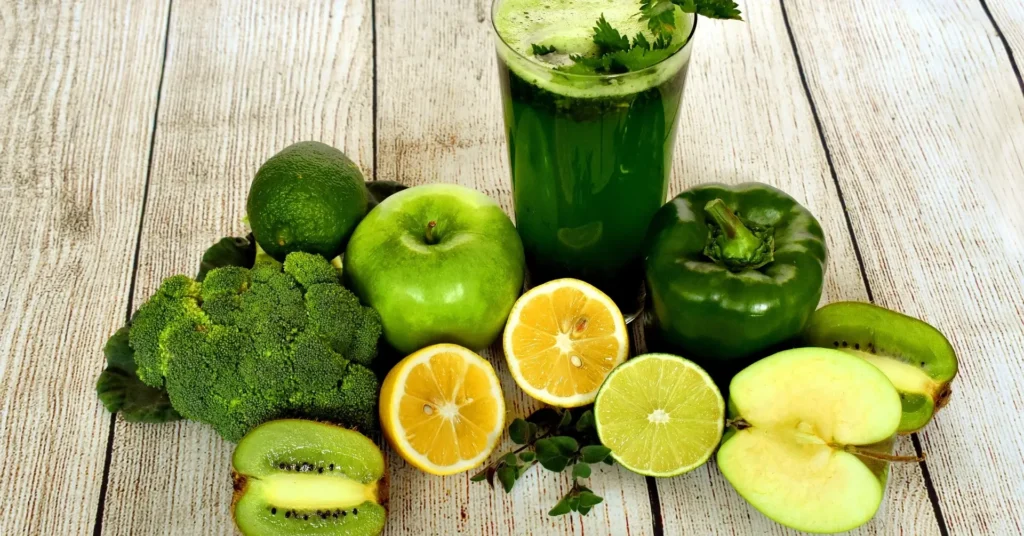
In recent years, the myth that a raw food diet is healthier than a normal diet with heated foods has spread, especially in the vegan scene.
A core argument of raw food advocates is the assumption that cooking destroys nutrients and that raw foods are therefore more nutritious. In fact, some nutrients can be lost through cooking.
For example, it makes sense to eat peppers raw because the vitamin C they contain is relatively sensitive to heat.
Other nutrients, on the other hand, are even better absorbed after heating.
Improved bioavailability
For example, cooking increases the bioavailability of lycopene, an antioxidant in tomatoes. The heat can break down cell walls and make nutrients more accessible to the body.
This improves the absorption of vitamins and minerals, as is the case with carrots, spinach and tomatoes.
Reduction of antinutrients
Another aspect that is often overlooked is the so-called antinutrients. These can hinder the absorption of nutrients in the body.
Cooking reduces many of these antinutrients, such as oxalic acid in spinach or phytic acid in wholegrain products. This enables more efficient use of the nutrients contained in the food.
Digestion
A major disadvantage of eating only raw foods is that some foods are difficult to digest when eaten raw. Raw vegetables can contain more fiber, which can cause digestive problems.
Cooking breaks down the cell structure, making it easier to digest while increasing the availability of nutrients.
Furthermore, cooking can help to make food safer by killing potentially harmful bacteria and parasites. This is particularly important with animal products such as meat and eggs.
As always, thinking in extremes is inappropriate. A pure raw food diet is very unhealthy in the long term and cannot be implemented to meet your needs.
Nevertheless, there are some foods that have many benefits when eaten raw
Are sugar substitutes healthier than sugar?
Many sugar substitutes are healthier than sugar, as they are metabolized independently of insulin and have no detrimental effect on dental health.
Do I really need detox diets to detoxify my body?
No, the human body has natural detoxification mechanisms, and long-term, balanced nutrition is more effective than short-term detox programs.
When are supplements useful?
If the need for certain nutrients such as vitamin D cannot be met through food, a well-planned supplementation makes sense.
Does fat make you fat?
No. Although fats have more calories per gram than proteins and carbohydrates, many fats play an important role in our metabolism, keep us satiated for a long time and reduce the risk of cravings.
Is a raw food diet really healthier than cooked food?
No. Heating food makes it more digestible, reduces inhibitors and even increases the bioavailability of some nutrients.
That were today’s 5 diet myths – thank you for reading to the end. If you learned something new today, I would really appreciate leaving me a comment on what was new to you.
Also, you might like this article explaining micronutrients and their role in our body.
Thank you and have a great day 🙂






